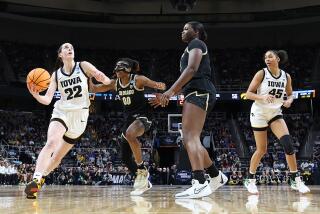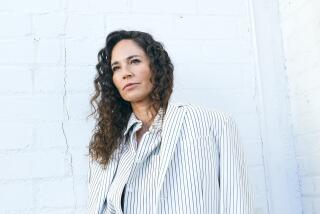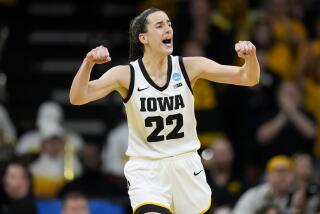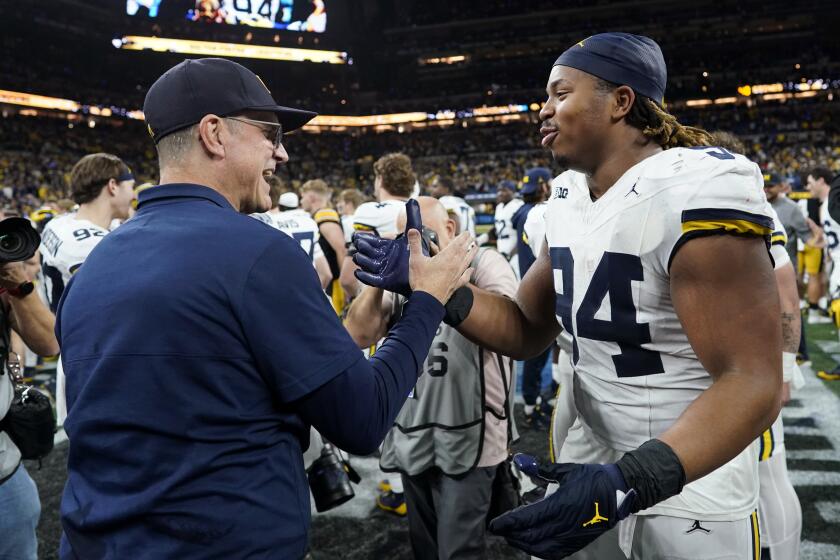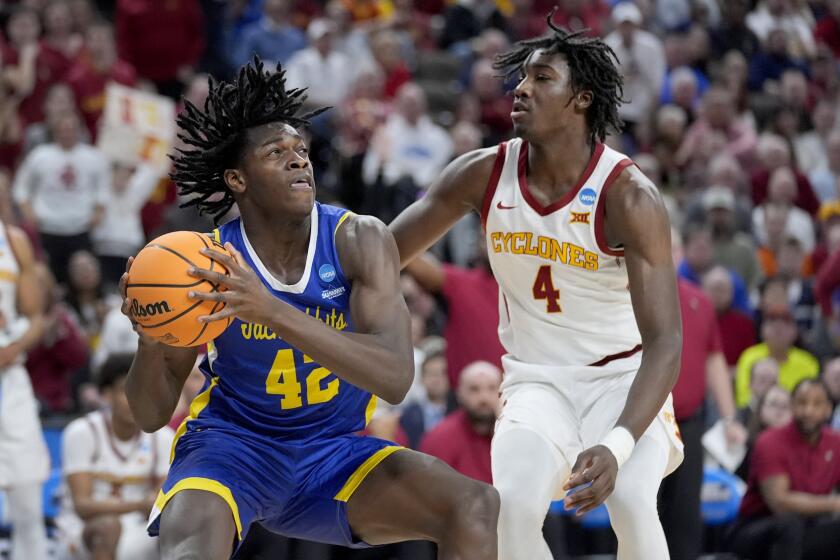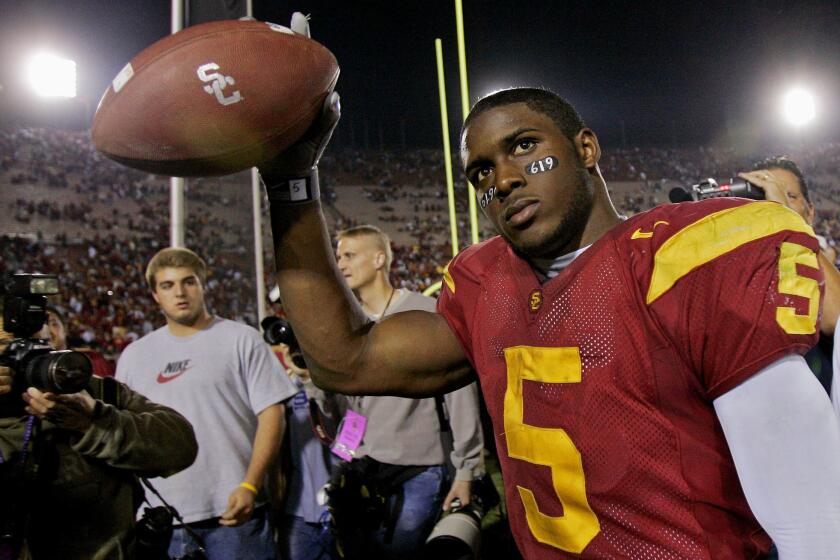Violet Palmer is just another NBA official and that’s a good thing
She has become every bit as much a fixture in the playoffs as Kobe Bryant, Marv Albert’s signature “Yesss!” call and a first-round flameout by the Portland Trail Blazers.
So what if she wears perfume and at times fixes her hair in a ponytail.
Violet Palmer has made it in a man’s game, and she’s not going anywhere.
The NBA’s only female referee has worked the playoffs six years running, and though the league will not publicly divulge its assignments for the first-round series that start Saturday, there’s no reason to think Palmer won’t be blowing her whistle into next month.
“I’m very proud of that,” Palmer, 47, said of her playoff track record. “I’m an old vet.”
It’s been 15 years since Palmer and Dee Kantner became the first female referees to work in major U.S. professional sports. Kantner was fired in 2002 because of poor performance, but Palmer has been around so long now that her presence no longer prompts double takes around the league.
“It’s not anything I think of,” Lakers Coach Mike Brown said, “maybe because she’s that good, she fits in and it seems natural for her to be an official for us.”
She’s also as tough as any player on the floor. Palmer worked the latter part of a game between the Lakers and Phoenix Suns in October 2009 at Staples Center with a torn rotator cuff after getting tripped late in the third quarter.
“I did the whole fourth quarter with one arm,” said Palmer, who had surgery the next week and missed the rest of the season.
Her eyes and ears have also absorbed some blows.
In 2007, Boston Celtics radio analyst Cedric “Cornbread” Maxwell, upset about Palmer’s calls in a game, said she should “go back to the kitchen.” A few years later, Phoenix point guard Steve Nash reacted to a foul call by forming circles over his eyes with his hands, implying that Palmer needed glasses.
Dennis Rodman once famously quipped that he would pat Palmer and Kantner on the rear, as the controversial player had done to male officials. Physical contact with players or coaches has been rare, Palmer said, though players who accidentally bump into her 5-foot-8 frame typically make every effort to ensure she doesn’t topple over.
“They’ll tell me, ‘If it was him,’ ” Palmer said, referring to a male colleague, “ ‘I would let him fall down.’ We’ll laugh about it, go on to the next play and it’s over.”
Some players seem to enjoy close proximity to Palmer, complimenting her on her perfume. Her favorite brands are Michael Kors and Marc Jacobs.
Palmer never aspired to be a pioneer so much as she merely wanted to reach the top of her profession.
Her basketball career started at Compton High, where she was a star point guard before leading Cal Poly Pomona to NCAA Division II national championships in 1985 and 1986. She then worked as a recreation director for the city of Los Angeles and moonlighted as a referee, starting with high school girls’ games and moving all the way up to NCAA women’s Division I before entering the NBA’s training program in 1995.
Palmer’s love of officiating was nurtured by Darlene May, her late college coach who in 1984 became the first female official to work an Olympic women’s basketball game.
Palmer credits her parents, James and Gussie, for instilling in her the belief that hard work and confidence are the cornerstones of success. Her father worked six days a week as a furnace operator for a company that manufactured airplane parts and her mother offered unwavering support.
Mom and dad still watch every game on NBA League Pass.
“Mom will call after a game and say, ‘That was a tough game you worked,’ ” Palmer said. “ ‘But ya’ll did good, though.’ ”
Palmer, who is single and lives in West Los Angeles, has worked overtime off the court to help her female colleagues. She is the coordinator of women’s basketball officials for the Pac-12and West Coast conferences and runs a referee school whose alumni include Brenda Pantoja, who works games in the NBA’s Development League and the WNBA.
There are eight female referees in the D-League and 11 who are slated to work for the WNBA this season, numbers that Palmer cites as encouraging progress.
“We’ve come a long way and we will continue to come and show our gender is irrelevant,” Palmer said. “It’s about hard work and going out and being able to do your job, period.”
This is the time of year when Palmer loves to do it most.
Of the NBA’s 62 referees, only 36 are picked to work in the playoffs. The number dwindles each round, with selections based strictly on performance.
Palmer has worked as deep as the conference semifinals. The Finals remains one of her major goals.
“Your dream is to get to the top,” she said.
More to Read
Get our high school sports newsletter
Prep Rally is devoted to the SoCal high school sports experience, bringing you scores, stories and a behind-the-scenes look at what makes prep sports so popular.
You may occasionally receive promotional content from the Los Angeles Times.
